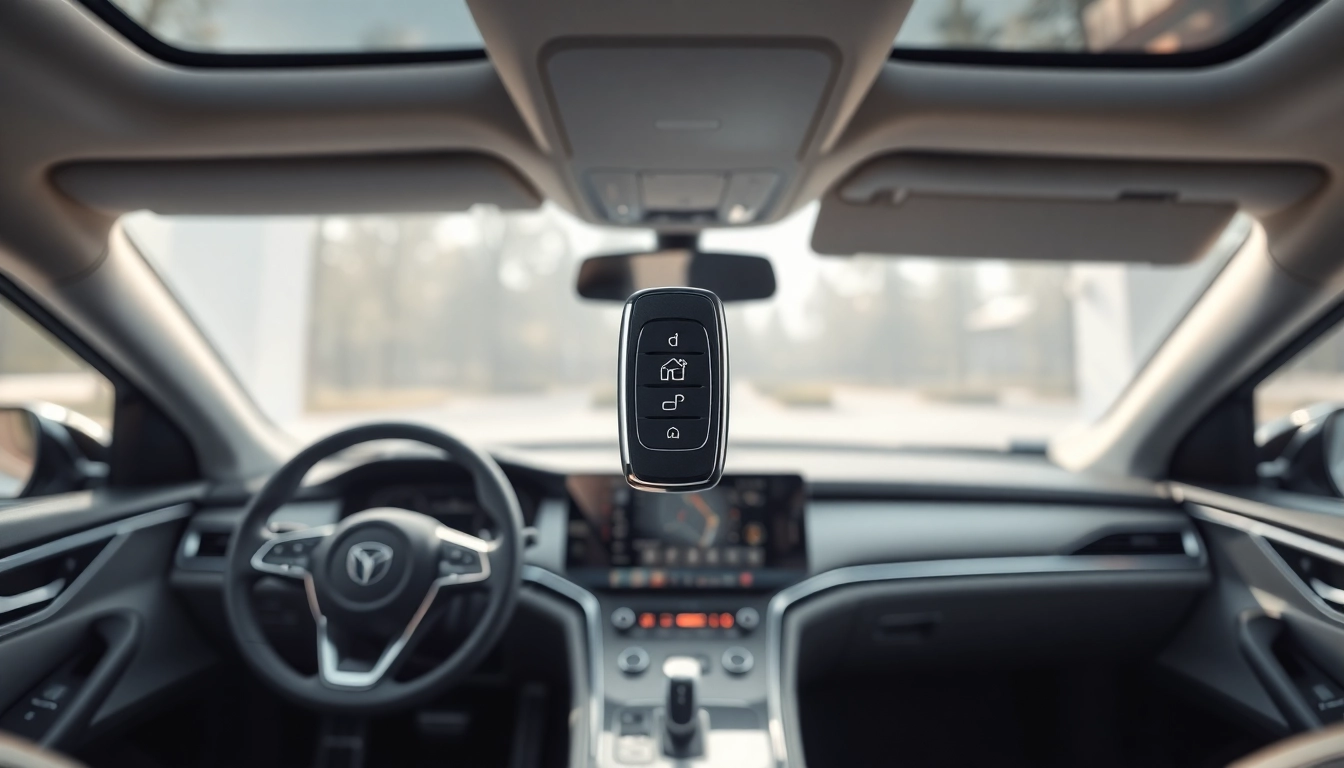Understanding Keys for Electric Cars
As electric vehicles (EVs) continue to gain popularity around the globe, it is essential to understand the distinct types of keys designed specifically for them. These keys not only facilitate access but are integral to the overall usability of electric cars. This article delves into the various aspects of Keys for electric cars, exploring their features, benefits, and the trends shaping their future.
What Are Electric Car Keys?
Electric car keys encompass a range of devices designed to operate and secure electric vehicles. Unlike traditional car keys, they involve advanced technology that integrates various functionalities beyond merely locking or unlocking doors. Depending on the model and manufacturer, keys can include remote fobs, key cards, or even smartphone applications, allowing for seamless access and operation of the vehicle.
Differences Between Traditional and Electric Car Keys
The transition from internal combustion engines to electric vehicles has brought about notable changes in key technology. Traditional ignition keys primarily serve a single-purpose function: to unlock the car doors and ignite the engine. In contrast, electric car keys often utilize digital technology that enables features such as keyless entry, remote starting, and battery monitoring.
Furthermore, while traditional keys are typically mechanical, many electric car keys leverage RFID (radio-frequency identification) or NFC (near-field communication) technology for enhanced security and convenience. This not only streamlines the way users access their vehicles but also adds layers of security against theft.
Types of Keys for Electric Cars
Electric car keys can be classified into several types based on their functionality and the technology used. Here are some of the most common:
- Key Fobs: These are handheld devices equipped with buttons to lock, unlock, and start the vehicle. They often include features like remote start and panic alerts.
- Key Cards: Similar to credit cards, these can be tapped or swiped against a sensor to access the vehicle. They are particularly popular in premium electric models.
- Smartphone Apps: Many electric vehicles allow users to control their cars via dedicated mobile applications. These apps can perform functions such as remotely starting the engine, checking battery status, and locating the vehicle.
- Wearable Tech: Emerging technologies are leading to the development of keys that can be integrated into wearable devices, such as smartwatches, allowing users to access their vehicles with a simple gesture.
Benefits of Using Keys for Electric Cars
Improved Convenience and Accessibility
One of the primary benefits of keys for electric vehicles is the increased convenience they offer. With technologies like keyless entry and smartphone connectivity, drivers have easier access to their vehicles, allowing them to unlock and start their cars practically instantaneously. This is especially beneficial in situations where hands are full or when entering the vehicle in adverse weather conditions.
Advanced Security Features
Electric car keys come equipped with advanced security features that significantly reduce the chances of theft. Features such as rolling codes, encrypted signals, and two-factor authentication (via smartphone) provide layers of protection not typically found in traditional keys. The implementation of these technologies not only secures the vehicle but also offers peace of mind to the owner.
Cost-Effectiveness of Smart Keys
In terms of long-term ownership costs, using electronic keys can be more cost-effective. For instance, many EV key fobs have battery indicators and alerts, allowing users to proactively manage battery replacements rather than being caught off guard by a dead key fob. Additionally, the ease of reprogramming or replacing smart keys can lead to reduced service costs compared to traditional keys, which often require more labor-intensive replacements.
How to Choose the Right Keys for Electric Cars
Compatibility with Your Vehicle
When selecting keys for electric vehicles, ensuring compatibility with the specific model is crucial. Not all keys work with every make or model of EV. Therefore, always consult the owner’s manual or manufacturer specifications before making a purchase. Some models may be equipped with unique technology that dictates the type of key needed.
Features to Look For in Electric Car Keys
Several key features enhance the usability and functionality of electric car keys. Look for options that offer:
- Remote Start: Ideal for preconditioning the cabin temperature before entering the vehicle.
- Battery Status Monitoring: Helps track the vehicle’s battery health and range.
- Smartphone Integration: Allows for greater convenience and numerous control features through a mobile app.
- Multiple User Access: Some vehicles allow multiple keys or user profiles, which is beneficial for families or shared vehicles.
Price Considerations
The price of electric car keys can vary widely based on their complexity and the features they offer. Basic remote fobs might be affordable, but advanced keys with extensive features or those that require programming may have a steeper price tag. Budgeting for both initial purchases and potential replacements or reprogramming is critical in the overall cost considerations of owning an electric vehicle.
Common Issues with Keys for Electric Cars
Key Fob Battery Replacement
One of the most common issues faced by EV owners is the need to replace the key fob battery. Key fobs typically use small batteries that can last for several years, but factors like the usage frequency and environmental conditions can deplete their power sooner than expected. Recognizing low battery indicators or intermittent functionality can save time and hassle. Owners should familiarize themselves with battery replacement techniques to minimize downtime.
Programming New Keys
With advanced technology, reprogramming keys or fobs can sometimes be necessary. This could occur after purchasing a new key or if you lose your primary key. Understanding the programming procedure—which often includes both manual steps and software requirements—is essential. Many user manuals offer guidance, but consulting an expert may be required for more complex procedures.
Security Concerns and Solutions
As with any technology, security vulnerabilities exist. Hackers may employ methods such as relay attacks to access vehicles. However, several protective measures can be taken, including using features like two-step verification for smartphone integrations and always keeping keys in a secure location when not in use. Staying informed about the latest security updates and practices is vital to safeguarding your vehicle against unauthorized access.
Future Trends in Keys for Electric Cars
Emerging Technologies in Key Design
The future of electric car keys is promising, with advancements in technology paving the way for innovative designs. Key makers are exploring biometrics; such as fingerprint recognition, to enhance security and user experience. Additionally, integration with vehicle-to-everything technology is expected, allowing keys to communicate with surrounding infrastructure, improving accessibility and safety.
Integration with Smartphones and Apps
As smartphones become increasingly central to daily life, their integration with vehicle keys cannot be overstated. Future electric vehicles are expected to rely more heavily on app-based functionalities, allowing users to manage not just locking/unlocking but a plethora of features directly from their devices. This amalgamation of technology offers unparalleled convenience and user engagement.
Anticipated Changes in Key Regulations
Alongside technological advancements, it is likely that regulations surrounding vehicle security will evolve. As electric vehicles become more prevalent, government entities may implement standardized protocols concerning key functions and safety features. Staying abreast of these changes is critical for manufacturers and consumers alike to ensure compliance and security.



